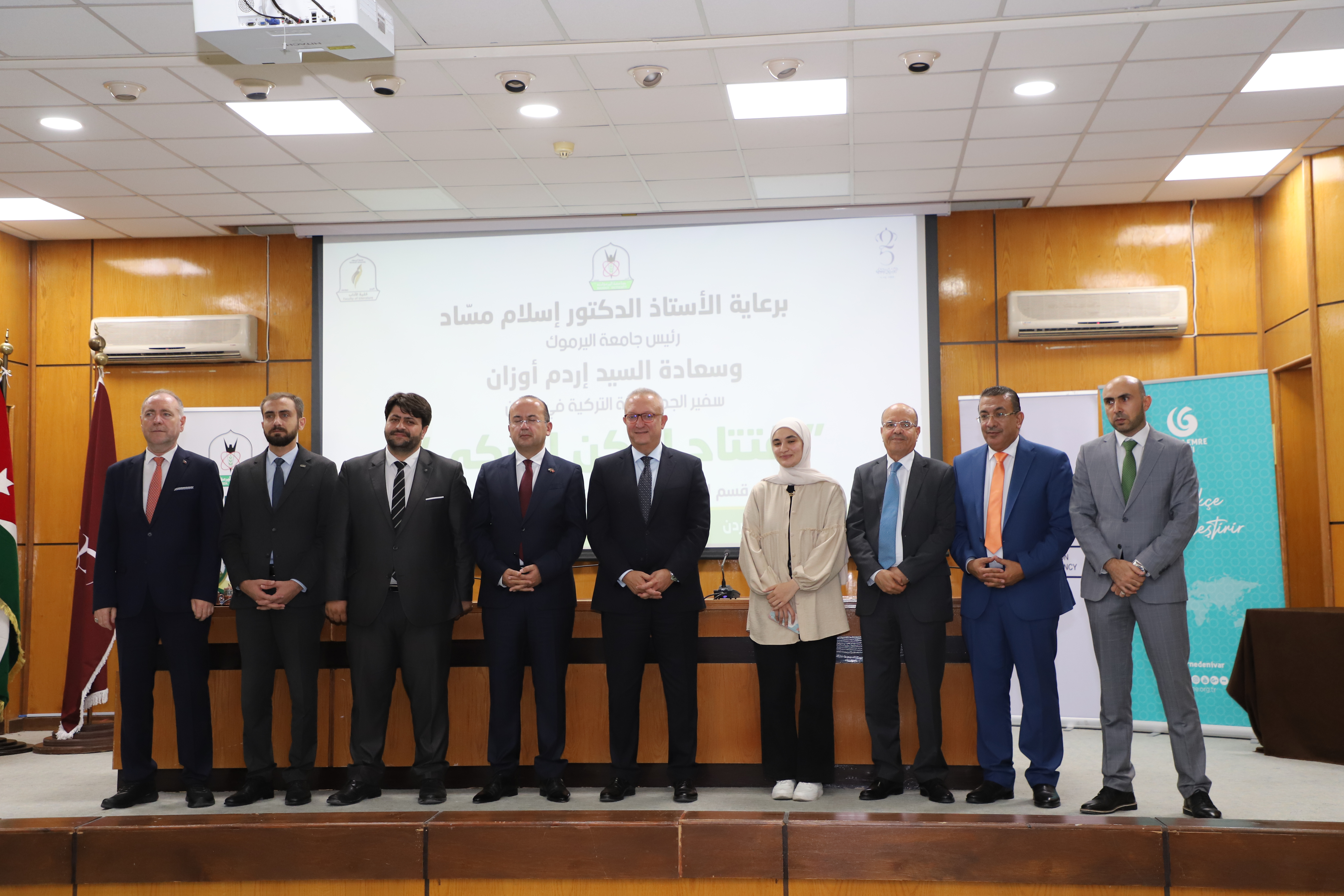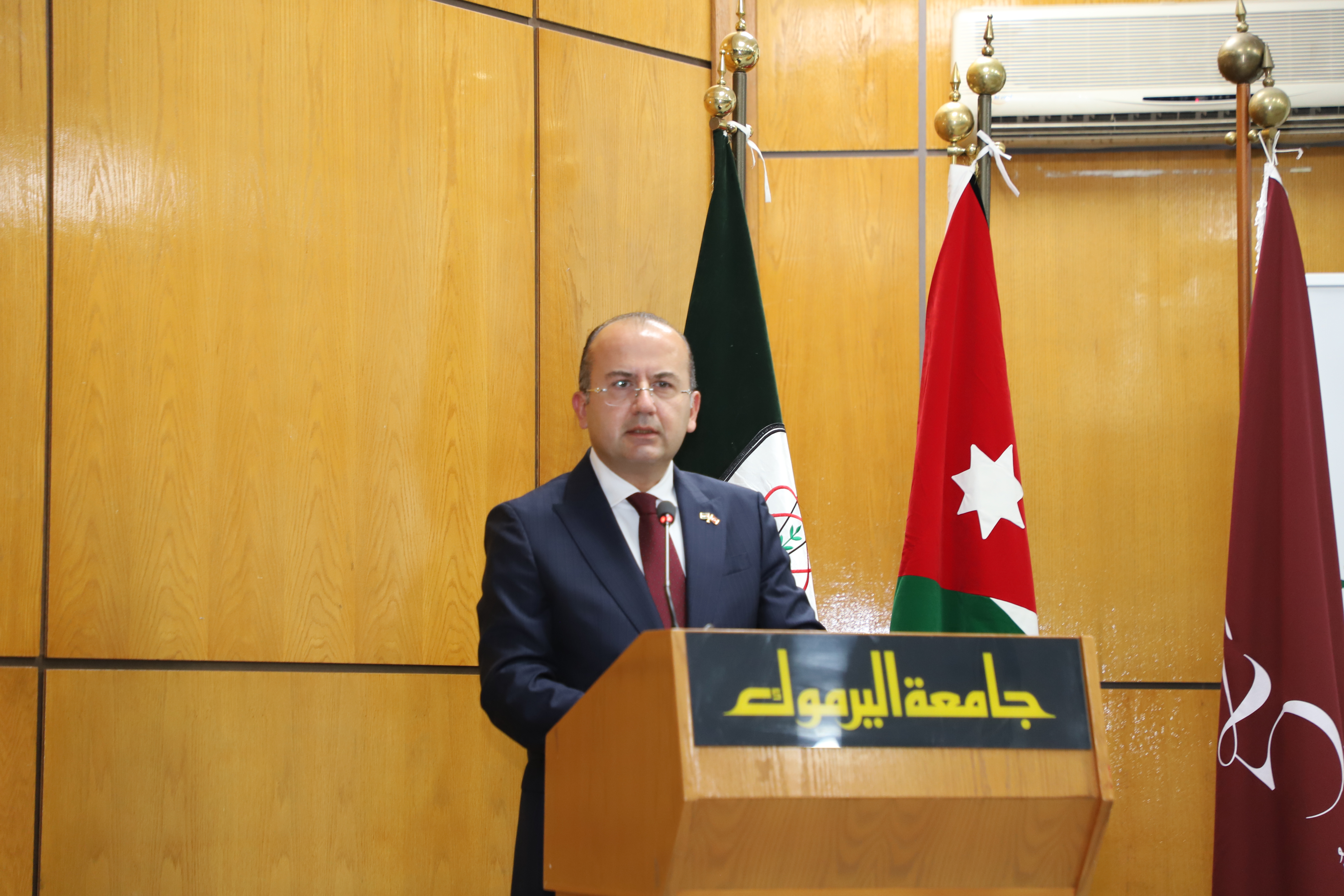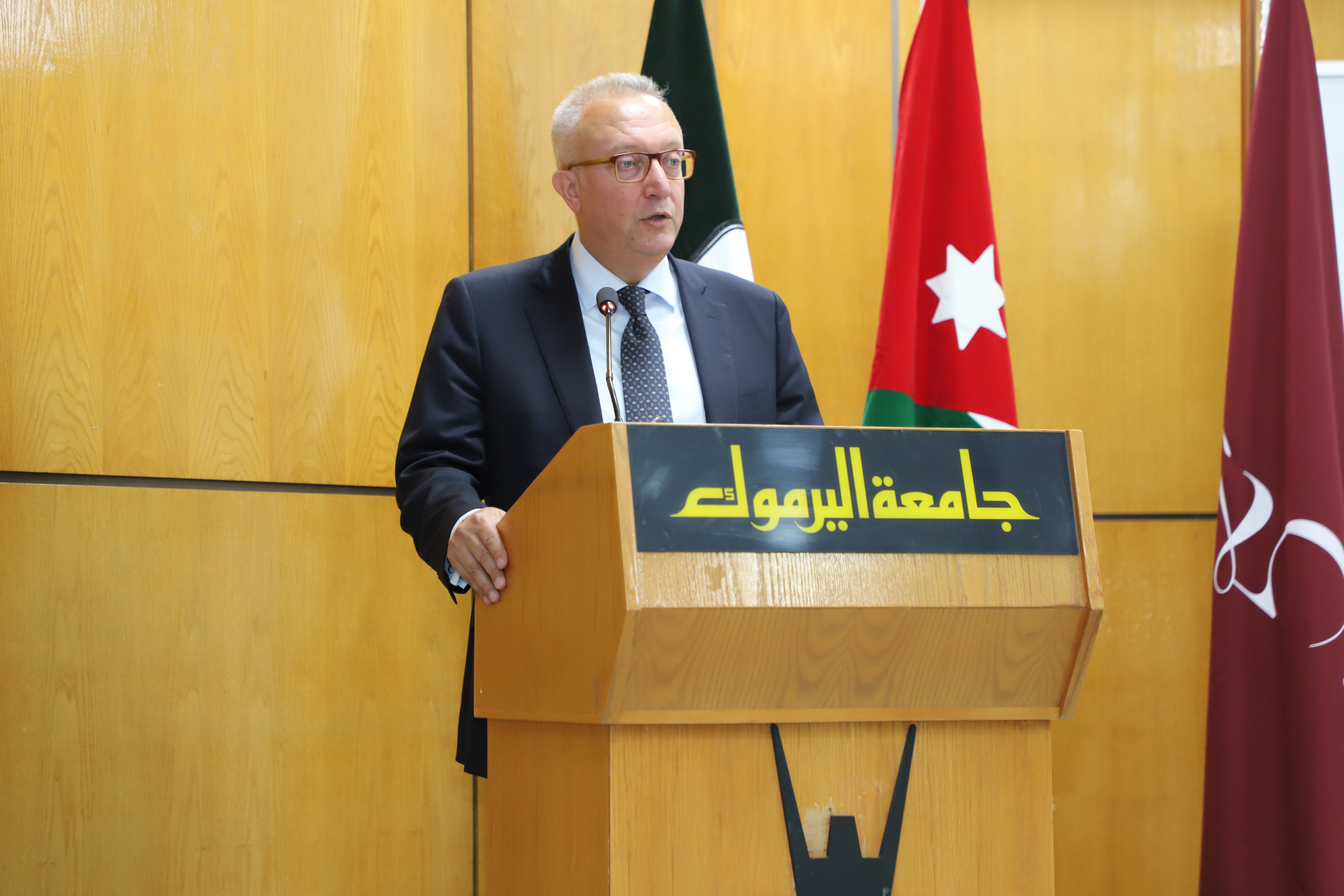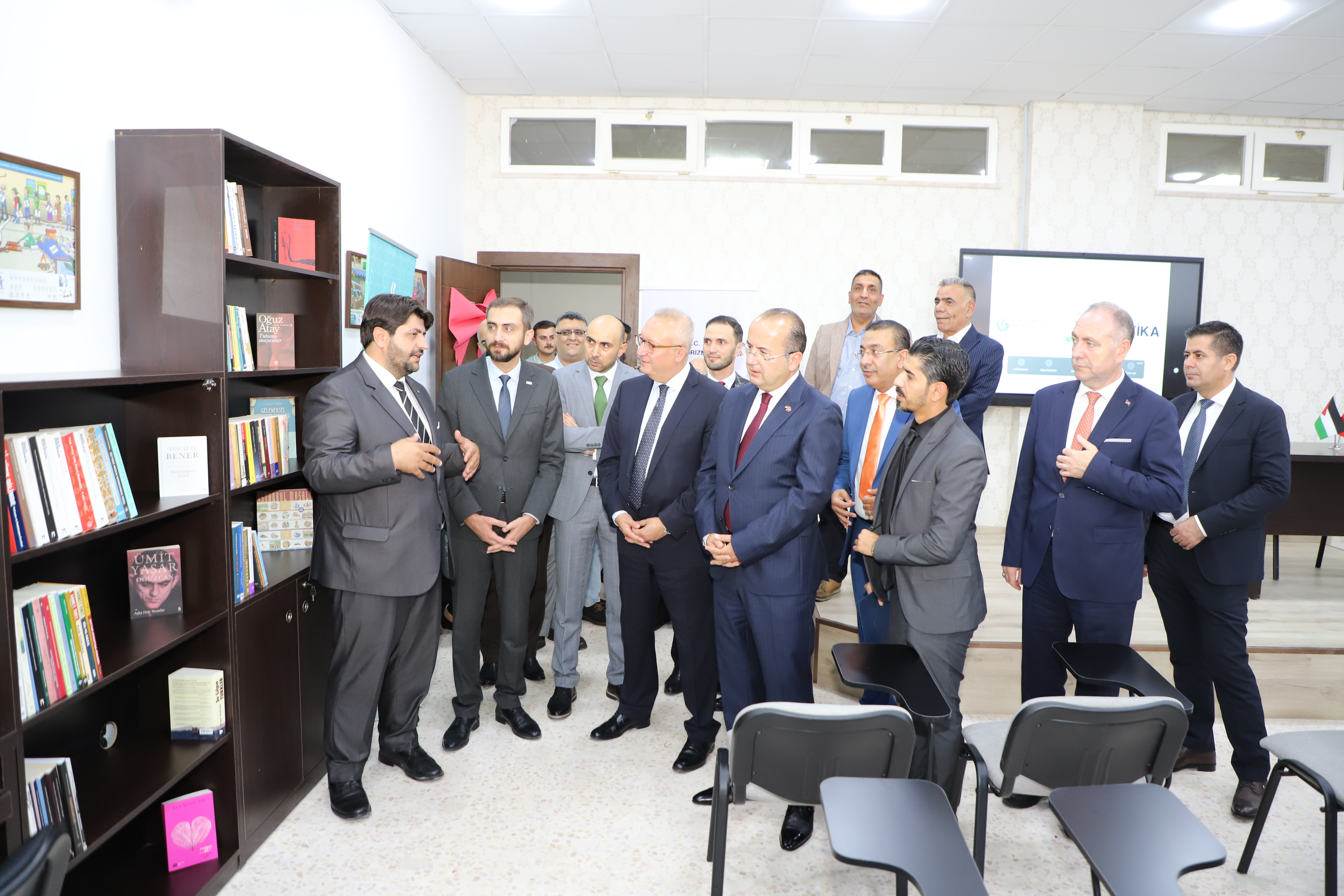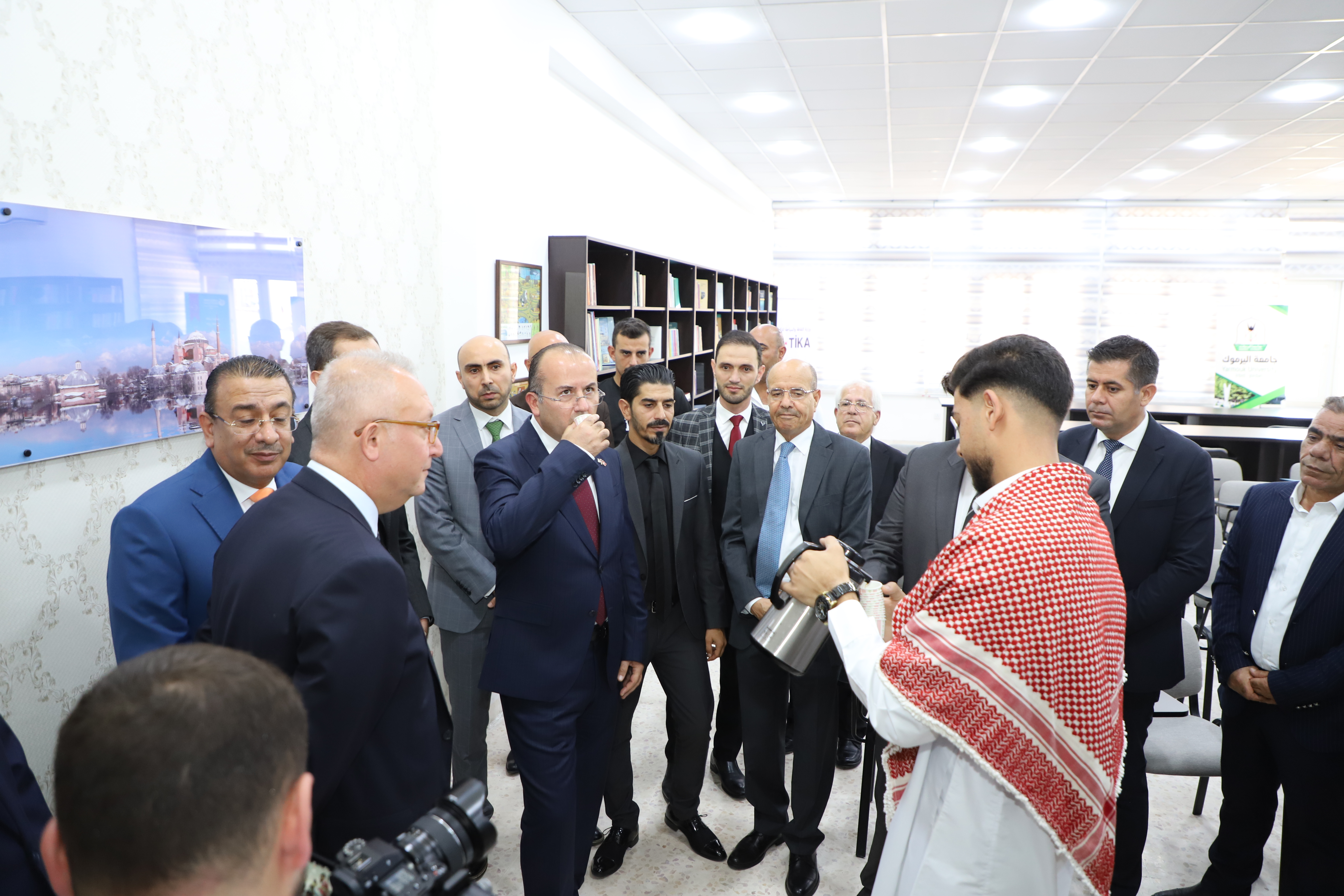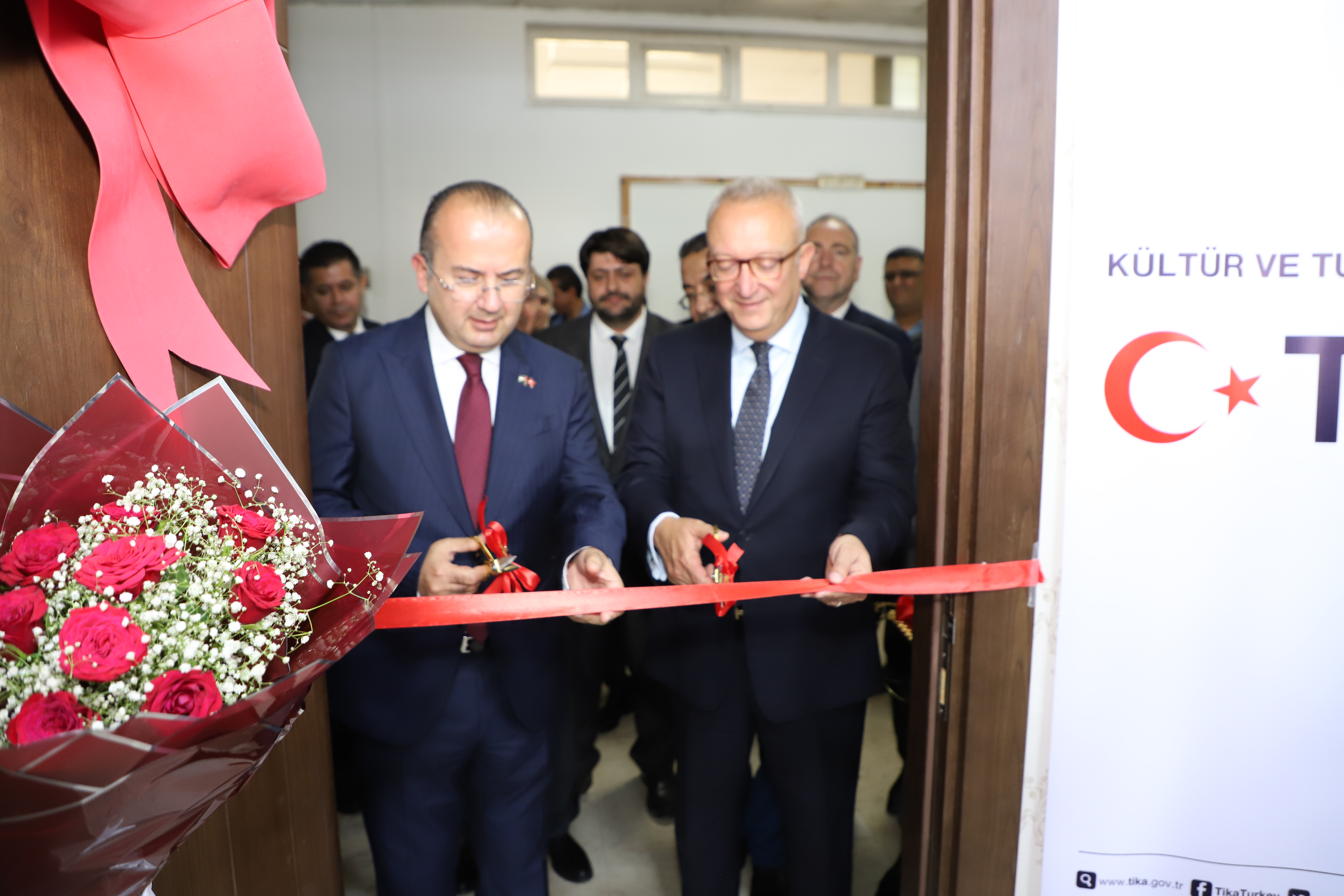
The President of Yarmouk University, Professor Islam Massad, and the Turkish Ambassador in Amman, Erdem Ozan, sponsored the opening of the Turkish Corner Hall at the Faculty of Arts. Massad said that the opening of the Turkish corner at the Faculty of Arts comes as part of the University's strategic plan based on developing partnerships and expanding relations with various embassies, institutions and universities inside and outside Jordan to serve the academic process. He then added that this event will contribute to strengthening the bonds of communication and developing relations and positive interaction between Jordan and the Republic of Turkey, appreciating the continuous support provided by the Turkish Embassy in Amman and the Turkish Cultural Center for the Turkish Language Program in the Department of Semitic and Oriental Languages at the Faculty of Arts.
Moreover, Massad stressed that Yarmouk University has always been a beacon of science and knowledge, and a place where students from different cultural and linguistic backgrounds meet, stressing the University's belief in the importance of communicating with friendly countries like Turkey in preparing the university students, refining their personalities, developing their skills, and preparing them optimally for the labor market. He then pointed out that Yarmouk offers the Turkish language program as an independent program at the Faculty of Arts, which makes it the only Jordanian university that grants an undergraduate degree in Turkish language. Besides, as he explained, Yarmouk offers Turkish language as part of its international language packages taught by the University’s Language Centre, in the context of its continuous efforts to update its study plans and keep pace with developments in the local, Arab, regional and international labor market.
In the same context, Ozan stressed the depth of the strong relationship between Turkey and Jordan, especially in the fields of education and culture, pointing to the interest shown by the Jordanian people and students in the Turkish culture and language. Ozan then praised the efforts of Yarmouk University, represented by the Department of Semitic and Oriental Languages at the Faculty of Arts, which paid great attention to the Turkish Language program, which enabled the students of the program to excel and be creative in their field of study, stressing the Embassy's endeavor to build bridges of cooperation in the field of education between Turkish and Jordanian educational institutions and indicating that within the scope of Turkish scholarships, the number of scholarships granted to Jordanian students for the next academic year has been increased by 30%.
Moreover, Ozan pointed out that there is cooperation and communication with the Jordanian authorities to implement many cooperation projects in various fields, especially in the field of higher education between the two countries, stressing the Embassy's readiness to support Yarmouk University with regard to strengthening and developing the Turkish language program. Besides, Ozan praised the efforts of those in charge of the Turkish Corner, which is a piece of evidence about the strong relationship between the Turkish Embassy and Yarmouk University, praising the cooperation of the Yunus Emre Institute in Amman and the office of the Turkish Cooperation and Coordination Agency "TIKA" in Amman to establish the Turkish Corner project and strengthen humanitarian, scientific and cultural ties between the Turkish Embassy and Yarmouk University.
For his part, the Head of the Department of Semitic and Oriental Languages at the Faculty of Arts, Dr. Hassan Al-Zayout, gave a speech in which he stressed the importance of studying languages and the need for developing it so that learners can communicate continuously with native speakers, which contributes to improving listening and speaking skills, provides a deeper understanding of local expressions and terms, and helps to use the language fluently and confidently. He then stressed the keenness of the Department of Semitic and Oriental Languages in general and the Turkish Language Program in particular to take all necessary measures to achieve real integration among students, by increasing networking with Turkish universities through memorandums of understanding and academic exchange agreements supported by the Erasmus Plus program, in addition to providing seven scholarships at the expense of the Turkish government for students of the Turkish Language program to participate in the summer scholarship program. Finally, Al-Zeyout pointed out that in order to provide a sound linguistic environment for the students of the program, the department, in coordination with the Turkish Cultural Center Yunus Emre and the educational advisor at the Turkish Embassy, increased the number of Turkish-speaking faculty members.
Regarding the Turkish Corner, Al-Zayout said that it represents a very important step in terms of teaching the Turkish language in the Department, as it includes several modern electronic resources such as computers and a smart board for holding meetings remotely, in addition to some other references, studies related to Turkish language and literature, and educational boards. He continued: The Corner will contribute to expanding students' horizons and their openness to the outer world, especially the culture and civilization of the Turkish society, through the diversity of its uses represented by holding seminars and scientific and cultural lectures offered by thinkers and researchers in the Turkish language and literature.
Thus, the opening activities of the Turkish Corner included lyrical performances presented by the students of the Turkish language program and a poetry segment presented by Noor Rajab and Jude Hamza. Moreover, the opening ceremony was attended by the Vice President for Academic Affairs, Professor Musa Rababa'a, the Assistant to the President of the University, Dr. Rami Malkawi, the Dean of the Faculty of Arts, Dr. Muhammad Al-Anaagrah, the Director of the Turkish Cultural Center Yunus Emre in Amman, Ansar Furat, the Educational Counselor at the Turkish Embassy in Amman, Hassan Kalali, and the Director of the Turkish Cooperation and Coordination Agency, Abdul Rahman Soylu.
